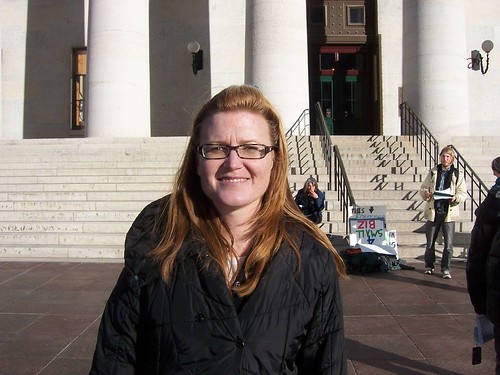 Cheryl Johncox said she and fellow activists with Buckeye Forest Council are not being perfectionists about the environment at the expense of society’s need for energy. She said they want better regulations.
“I can’t believe they can put a pit with radioactive fluid a hundred feet from my house and not even have to fence it in.”
Cheryl Johncox said she and fellow activists with Buckeye Forest Council are not being perfectionists about the environment at the expense of society’s need for energy. She said they want better regulations.
“I can’t believe they can put a pit with radioactive fluid a hundred feet from my house and not even have to fence it in.”
Johncox said that as of 2010, companies no longer have been required to submit a radioactivity log, and that fracking fluid from Marcellus shale and Utica shale contain radioactive particles at a thousand times the recommended limit
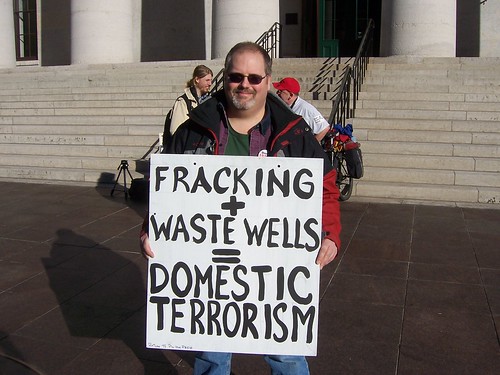
Green Party candidate for Mahoning County Commissioner Howard Markert said hydraulic fracturing is not new.
“It’s been in use for more than 60 years. What’s new is the combination of the horizontal drilling technique, which has only been around for about 15 years, and the high volume slick water concept. Instead of tens of thousands or 50,000 gallons of water per well, they’re using anywhere from 8 to 10 million gallons of water per well; and anywhere from 7,500 to 50,000 gallons of concentrated chemicals.”
Market said those who say there are no alternatives to fracking for providing the energy to run modern society should look to Germany
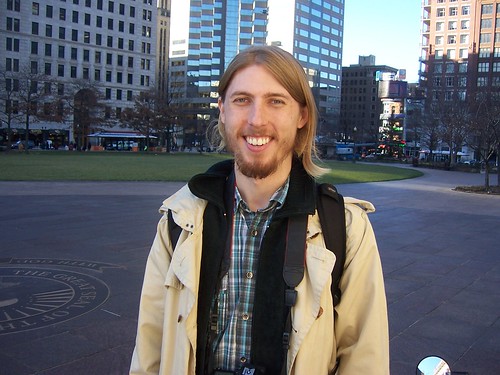
Luke Beekman from Mansfield, Ohio is working with a group called Mohican Advocates, aiming to defend the state park that has that name as well as the Malabar Farm State Park. He was in Columbus on Jan 10 building a mailing list and gathering signatures for a moratorium on fracking.
“The moratorium is basically saying ‘stop immediately all the fracking and all the waste water injection wells until there’s a proven safe way to extract the natural resources.’”
He said once the water is poisoned, there is no turning back
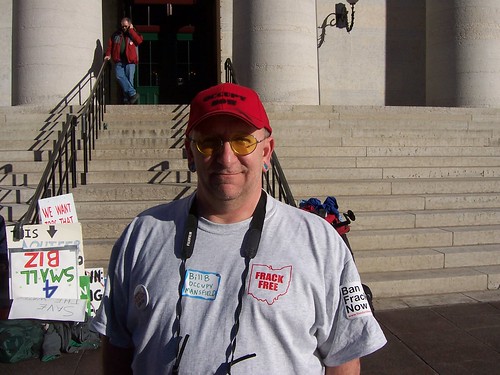
Members of Occupy Mansfield chose Bill Baker as a person to send to Columbus for the protest on Jan. 10. He said some people might be over-reacting in their environmental concerns about fracking, but that it’s important to seek out the facts about this issue, instead of relying on information from the gas and oil industries. For solid data he recommends the Department of Environmental Conservation of the state of New York.
Revised Draft SGEIS
“I can go there for reference and actually learn about both sides of the issue.”
Baker has been involved with Occupy Mansfield since October, helping them to raise money for a women’s and children’s shelter there as well as support for small businesses. He said the issue of fracking suits the Occupy Movement
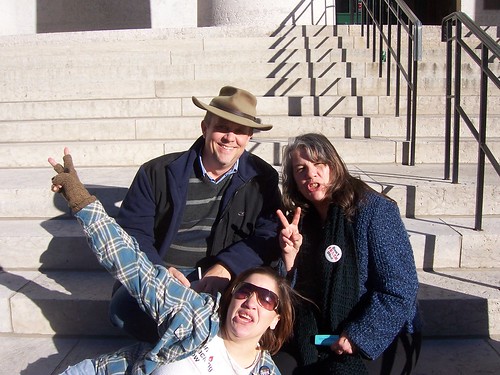
Connie Harris (gloveless peace sign) has been involved with activism in Columbus for many years. Presently working with Occupy Mansfield, she came to the state capital on Jan 10 to protest for a moratorium on fracking.
“We had a great turnout. If people keep pushing hard enough, maybe they (politicians) will listen. In Mansfield, the Occupy group was able to work with the city government, Republicans and Democrats. They’re building a so-called war chest to build a fund to keep fighting for laws for better oversight.”
Harris said the moratorium would allow time to properly assess the risks and possible benefits of fracking
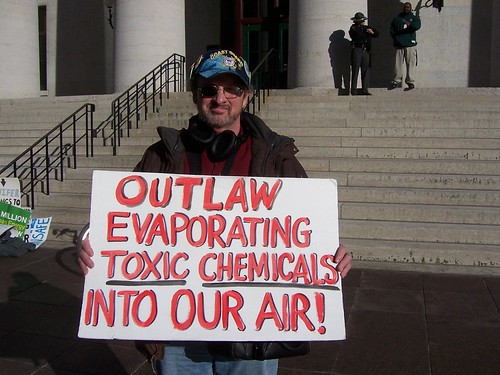
Sean O’Toole of Warren, Ohio.
“One of my main peeves is that we’re not putting enough resources into developing renewable energy.”
That’s because the lobbying of big business, O’Toole said.
“I would like to see, practically, that there are some limits put on how much power lobbyists can have with our elected representatives. It’s time that they started representing us.”
He supports the Occupy Movement.
“Throughout Ohio and throughout the Rustbelt, Youngstown and Warren, I support them fully." Comments for O'Toole
